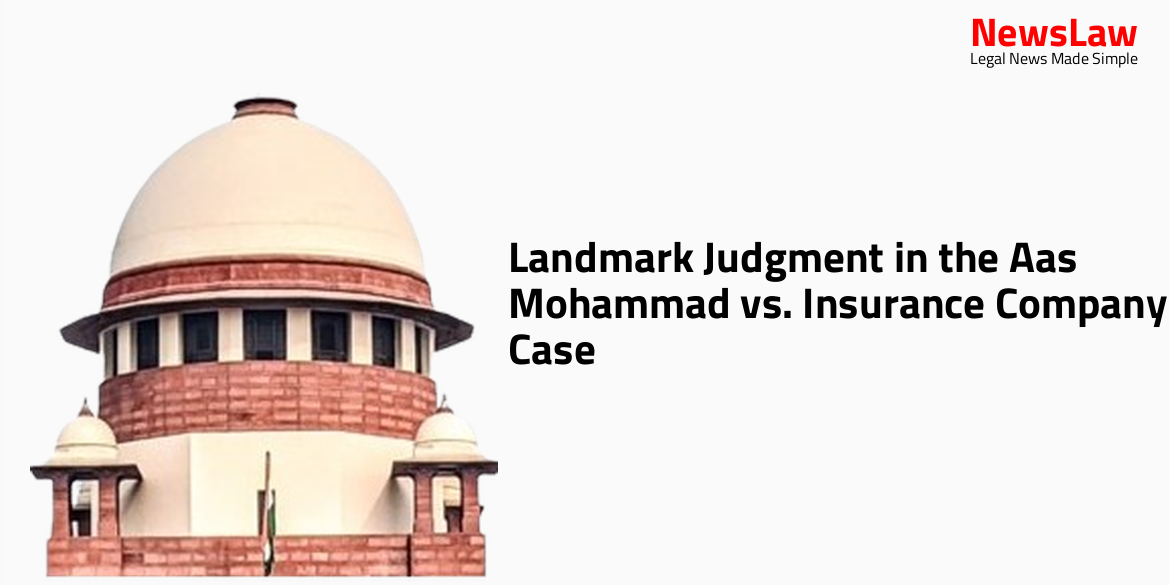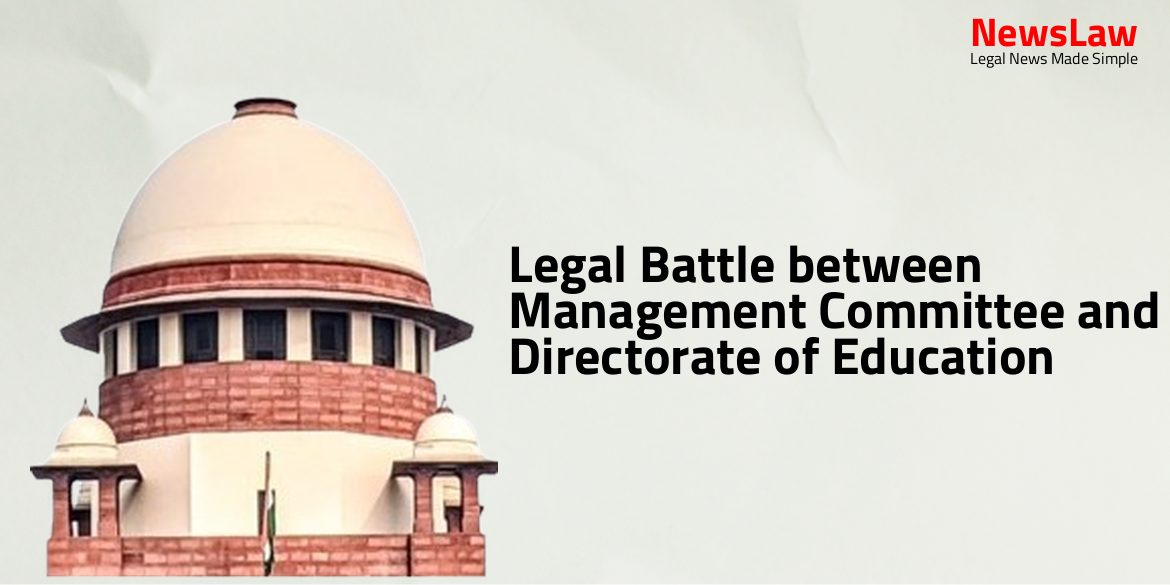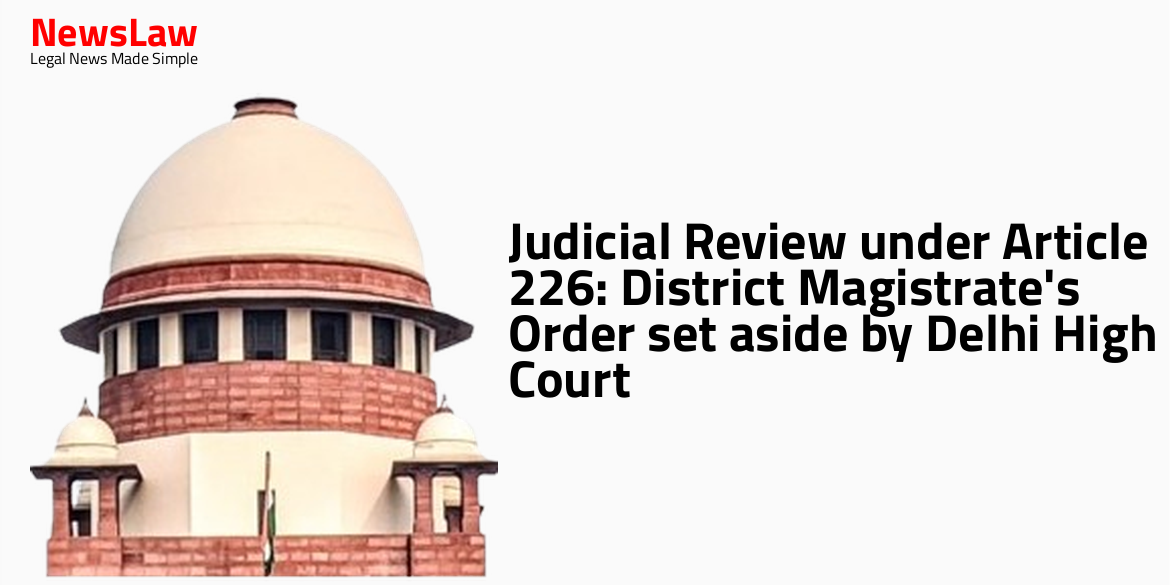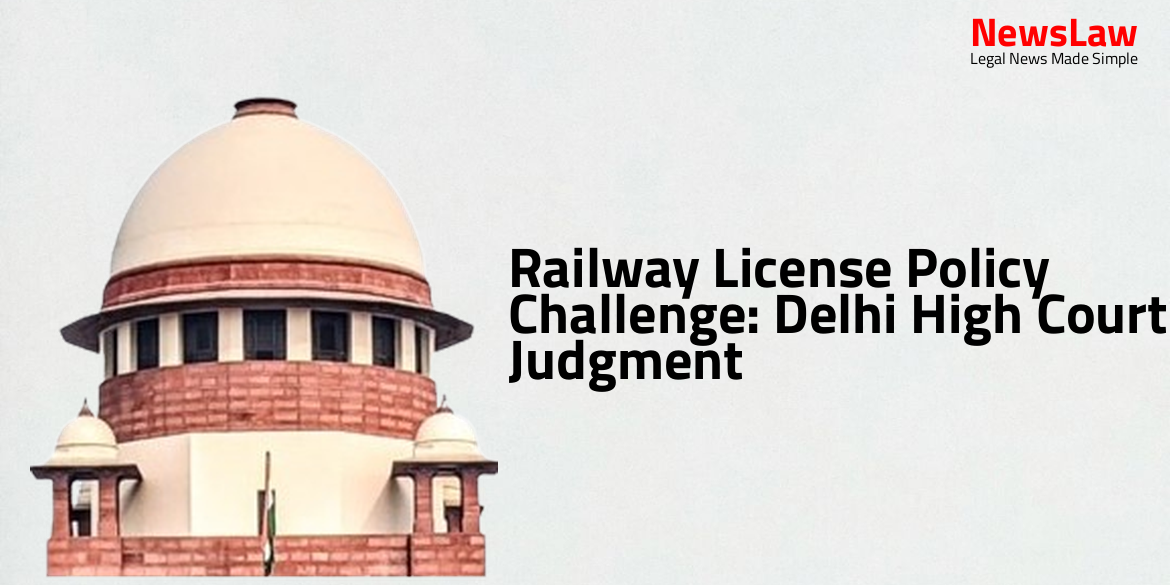In a significant ruling by the Delhi High Court, the case of Aas Mohammad against the Insurance Company has brought about a landmark judgment in the realm of insurance law. The judgment emphasizes fair compensation and upholds accountability in handling insurance claims, setting a crucial precedent for similar cases in the future.
Facts
- The appeal filed by the injured/claimant challenges the judgment-cum-award dated 21.11.2022 by the Motor Accident Claims Tribunal in New Delhi.
- The injuries suffered by the claimant at 49 years old were traumatic and debilitating, leading to a lifelong handicap.
- The compensation for loss of earning capacity was reworked to Rs. 1,95,000 based on an assessed monthly income of Rs. 10,000.
- The awarded compensation for mental, physical shock, pain, suffering, and loss of amenities was found to be meager and was increased to Rs. 40,000 and Rs. 20,000 respectively.
- Medical evidence confirmed a 15% permanent physical impairment, supporting the Tribunal’s decision regarding disability at 10%.
- The claimant’s inability to work and perform daily chores for a year justified an increase in the compensation for loss of income/earnings from Rs. 81,780 to Rs. 1,20,000.
- The claimant’s age of 49 years and the severe injuries sustained in the accident were considered in determining the future earning potential and functional disability compensation.
- Claim petition under Sections 166 and 140 of the M.V. Act allowed for permanent disability of 85% suffered by Aas Mohd.
- Total compensation awarded is Rs. 88,33,363/-
- Insurer attempting to evade liability based on evidence in MACP
- Aas Mohd., 24 years old, suffered 85% permanent disability to right lower limb
- No compensation received by Aas Mohd. till date
Arguments
- The Insurance Company’s misconduct and dilly-dallied strategy in leading evidence has caused gross injustice to the appellant.
- The appellant’s misery has been aggravated due to the untraceability of the driver and registered owner of the offending vehicle.
- Learned counsel for the claimant referenced various court decisions to support their arguments.
- Fraud vitiates everything, and since the offending vehicle was not insured for third-party risks, no liability to pay compensation can be fastened upon the Insurance Company.
- The Insurance Company argued that in the earlier claim petition, they had taken a specific plea that the policy of insurance was being verified, and evidence was led on this aspect in the third claim petition which led to the judgment dated 21.11.2022.
Analysis
- The appellant/insurance company cannot be allowed to approbate and reprobate in the same breath.
- The claimant testified that there were two different stamps on the insurance document bearing registration number ‘8186’.
- The claimant, being 49 years of age and an able-bodied person, was assumed to be earning a minimum of Rs.10,000 per month.
- The claimant underwent various surgical procedures post-accident, including insertion/fixation of rods in the right hand and elbow.
- The appellant sought enhancement of compensation under various heads such as pecuniary loss, non-pecuniary loss, and more.
- The appellant was directed to deposit the awarded amount along with interest within 30 days failing which a higher interest rate would apply.
- If the appellant fails to comply even after 90 days, the compensation would be recovered by attaching the insurance company’s bank account.
- The insurance company did not contest the claim petitions, and the responsibility for the accident due to rash and negligent driving was established.
- No evidence was presented by the insurance company to prove that the insurance policy was forged or fabricated.
- The trial for the claim petitions concluded in approximately two years, with delays likely due to the COVID-19 pandemic.
- Additional evidence was allowed to be presented by the insurance company regarding the validity of the insurance policy, but it did not hold up in court.
- The compensation awarded by the tribunal for loss of income, medical expenses, and other aspects was challenged by the insurance company.
- The tribunal evaluated the evidence related to the claimant’s injuries, medical treatment, and disability to determine the compensation.
- The validity of the insurance policy was questioned by the insurance company, but the findings of the tribunal in earlier claim petitions were upheld against this argument.
- The insurance company’s witnesses failed to provide substantial evidence regarding the alleged forgery of the insurance cover note.
- Regarding loss of earning capacity and future income, the tribunal considered the claimant’s age, injuries, and inability to work for assessment.
- The claimant’s compensation for pain, suffering, and disability was deemed reasonable by the tribunal given the nature and extent of the injuries.
- The tribunal scrutinized the medical bills, treatment records, and deposition of witnesses to determine the compensation amounts.
- The tribunal’s decision to hold the insurance company liable for compensation was based on the established facts and evidence presented during the trial.
- The Kerala High Court decision in Devi T. V. v. Jamsheer P. & Ors. discussed two claimants in separate petitions involving an auto-rickshaw accident.
- In one petition, the Insurance Company was held liable to pay compensation, while in the other, liability was on the driver and the owner, absolving the insurer of financial responsibility.
- Mixed questions of law and fact settled in prior proceedings cannot be re-challenged in subsequent proceedings between the same parties.
- The Kerala High Court decision referenced the case of Mathura Prasad Bajoo Jaiswal, emphasizing that insurer’s liability must be consistent across similar claims.
- Res judicata applies to questions of law, ensuring consistency in legal interpretation and rights claimed or denied between the parties.
- The Supreme Court decision in Mathura Prasad Bajoo Jaiswal v. Dossbai N.B. Jeejeebhoy reiterated the principle that res judicata does not consider the correctness of the earlier judgment.
- The insurance company’s liability to indemnify the insured owner as per the policy was a previously resolved issue between the insurer and the insured owner.
- The judgment-cum-award dated 21.11.2022 in MACP No. 136/2016 is unsustainable in law.
- It cannot be upheld as the appellant/insurance company has been wrongly exonerated from paying compensation.
- The possibility of the appellant requiring assistance while confined to bed is deemed plausible.
- The need for a nursing assistant or attendant during the appellant’s confinement is considered within human and social experience.
Decision
- MAC APP No 1033/2018 filed by the insurance company is dismissed.
- Compensation amount to be deposited with the Tribunal within four weeks.
- If not deposited, penal interest of 12% per annum to be paid from 26.11.2018.
- Compensation for nursing/attendant enhanced to Rs. 1,00,000/- from Rs. 50,000/-.
- MAC APP No 306/2019 filed by the claimant allowed with enhanced compensation for future medical treatment.
- Total compensation worked out to be Rs. 16,37,555/-
- MAC APP No 304/2019 filed by the claimant allowed with total compensation of Rs. 16,37,555/- with interest @ 9% per annum.
- Insurance company to pay entire compensation of Rs. 88,33,363/- to the appellant Aas Mohammad with interest @ 9%.
- Compensation towards pain and suffering enhanced to Rs. 2,00,000/- with an equal amount awarded for loss of enjoyment of amenities of life.
- Total compensation worked out to be Rs. 8,96,663/- with interest @ 9% per annum.
- Compensation for pain and suffering enhanced to Rs. 2,00,000/- with an equal amount enhanced for loss of amenities and enjoyment of life.
- MAC APP 379/2023 decided with directions for depositing compensation within four weeks or facing penal interest.
Case Title: AAS MOHAMMAD Vs. SH MANOJ KUMAR AD OTHERS (2024:DHC:4014)
Case Number: MAC.APP.-379/2023



